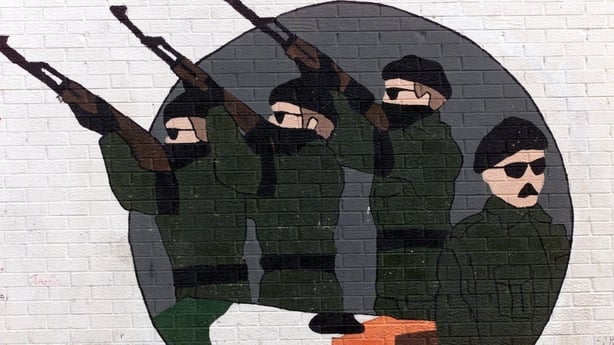By David McCullagh and Fiachra Ó Cionnaith
Two loyalist paramilitaries chatting with a contact over pints in the Crown Bar in the city in 2000 were probably less discreet than they should have been because their remark that "racketeering is just a fact of life in Belfast" was reported back to Irish officials.
The pair were leading figures in the Ulster Democratic Party, the political wing of the UDA.
They admitted that some of their members were involved in drugs but insisted that so were rival loyalist paramilitaries in the UVF, if indirectly, as they imposed a tax on drug dealers.
It was an example of the criminal activity in which loyalist and republican paramilitaries engaged, which had been on the radar of both governments for years.
In 1993, the British proudly told their Irish counterparts that their Terrorist Finance Unit boasted "the best computer in the UK" in terms of size and value.
Armed with this computing power, and a staff of 26, which was shortly expected to double, they were cracking down on paramilitary criminality.
They observed that the IRA were "far ahead of the loyalists in regard to fraudulent activities", but the loyalists were quickly catching up.
Terrorist money was coming from gaming machines, taxis, social clubs, armed robberies, commercial opportunities, fraud, overseas contributions, extortion, the construction industry, smuggling, and video piracy.
The Terrorist Finance Unit had objected to the renewal of drinking licences for social clubs they suspected were fronts for loyalists.

Fifteen were closed while another 15 were allowed to remain open, but with new accounting systems in place to make sure their takings were accurately recorded – and taxed.
More accurate accounting revealed the clubs were earning millions more than they had claimed, though the authorities still thought they were only declaring about a fifth of their true earnings.
The closure of republican drinking clubs was estimated to have cost the IRA £3 million annually.
Video piracy was worth around half a million pounds to paramilitaries and smuggling about £10 million.
Republicans made most from this.
One fuel operation in Armagh received £6 million worth of fuel, none of which was distributed in Northern Ireland.
Read more:
1994 State Papers shed little light on FF-Labour collapse
Bruton sceptical SF, SDLP represented nationalist views
Issues with Rome embassy pool described as a 'debacle'
Holy Cross priest offered accommodation after threats
Five other things we learned from the State Papers
The assumption was that it had been smuggled across the border.
Paramilitaries from both sides had huge power to decide who worked and who didn’t in areas like black taxis and construction.
The latter industry was "rotten" according to the British, with money being skimmed off through tender rigging, terrorists forcing landowners to sell building land cheap, income tax evasion, and working while claiming social welfare.
However, while construction fraud was estimated to cost £20 million a year, the authorities thought only between £1 and £2 million of this was going to paramilitaries.
The rest presumably went to what people sometimes referred to as "ordinary decent criminals".
[Based on files in 2024/28/6 and 2024/28/9]

